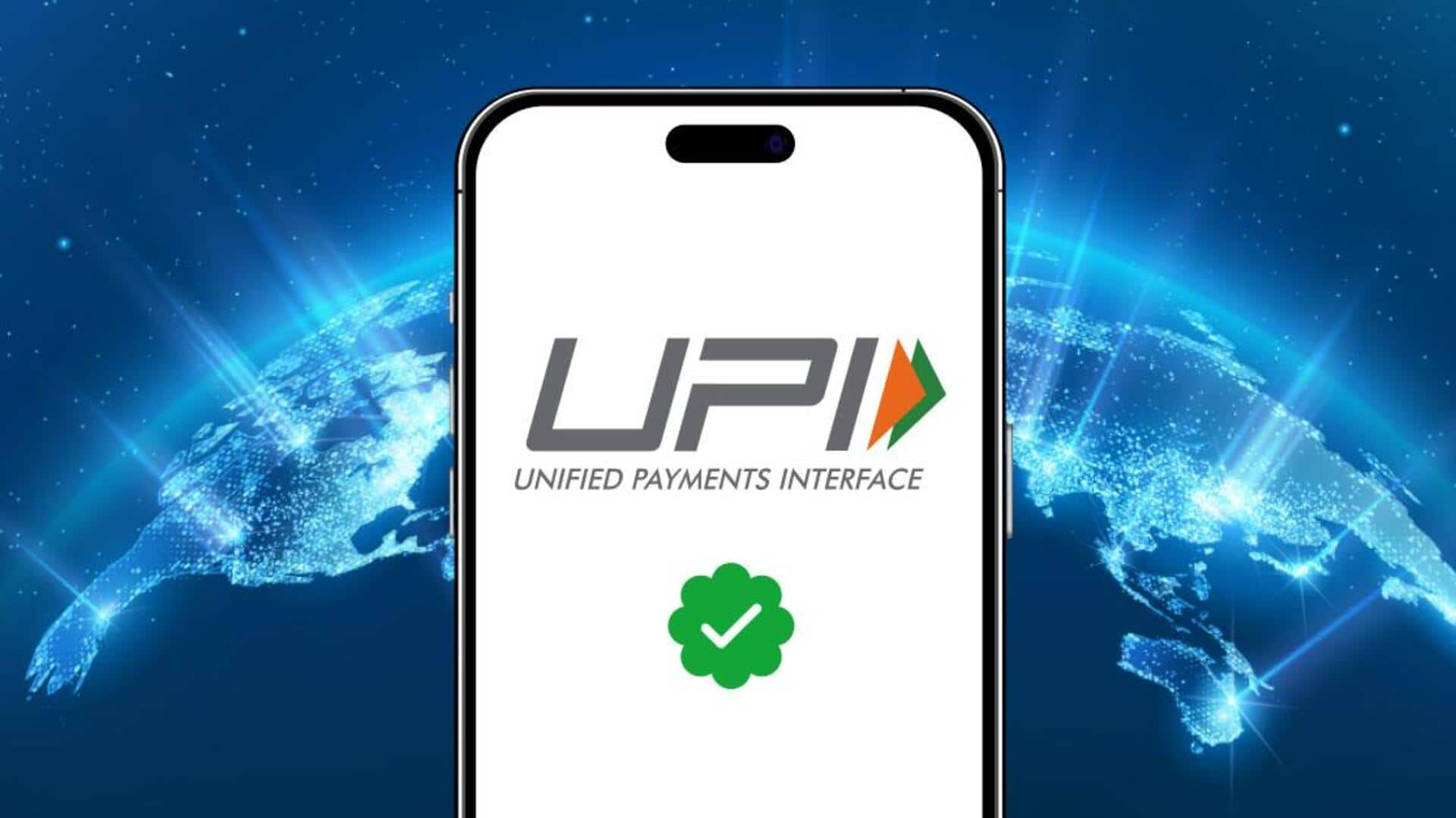
India leads globally for fast digital payments, thanks to UPI
What's the story
India has been recognized as the world leader in fast retail digital payments, thanks to the phenomenal growth of Unified Payments Interface (UPI). The International Monetary Fund (IMF) made this observation in its Fintech Note titled "Growing Retail Digital Payments: The Value of Interoperability." The report highlights how UPI has revolutionized India's payment landscape since its inception in 2016.
Interoperability impact
UPI's success attributed to its interoperable design
The IMF report credits UPI's success to its interoperable design, allowing seamless transactions across different banks and payment systems. This open framework has led to higher adoption rates and easier integration, boosting overall digital payment usage. The study also found that regions with more interoperability see a significant increase in total digital transactions relative to cash withdrawals over time.
Cash reduction
Report shows correlation between UPI adoption and cash usage
The IMF report estimates cash usage by looking at ATM withdrawal volumes across Indian districts. The data shows a clear correlation: areas with higher levels of UPI integration see a sharper and sustained decline in ATM usage. This indicates that UPI's ability to integrate multiple bank accounts, enable real-time payments, and provide app-agnostic utility has shifted user behavior toward digital-first transactions.
Transaction growth
UPI processed ₹23.49 lakh crore transactions in October 2024
According to a government release in December last year, UPI's monthly transaction volume crossed ₹23.49 lakh crore through 16.58 billion transactions in October 2024. This is a 45% year-on-year (YoY) growth compared to October 2023. With 632 banks now live on the UPI platform, its dominance is unmistakable in India's digital financial infrastructure.
International growth
UPI is now accepted in several foreign markets
India's payment innovations are no longer limited to its borders. UPI's global growth is driven by partnerships through NPCI International Payments Ltd (NIPL), which works with foreign banks and payment networks. These efforts often involve QR-code-based payments and point-of-sale (POS) integration, making UPI accessible to Indian tourists and businesses abroad. Today, UPI is operational in at least seven countries, including France, UAE, Bhutan, Nepal, Mauritius, Sri Lanka, and Singapore.
Expansion plans
Future expansions and potential challenges for UPI
Future expansions of UPI include Malaysia, Qatar, and Thailand as part of National Payments Corporation of India (NPCI)'s growth strategy for Southeast Asia and West Asia. The UK is also in the process of phased integration of UPI, with MoUs and gradual implementation across select merchants and airports. However, the IMF warns that the platform's future success hinges on ensuring a level playing field to prevent market dominance by a few private entities as the ecosystem matures.